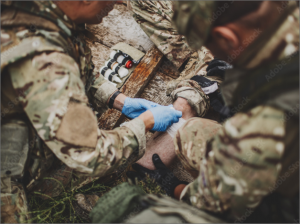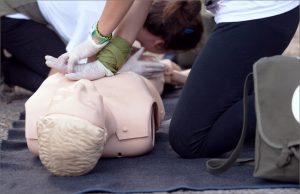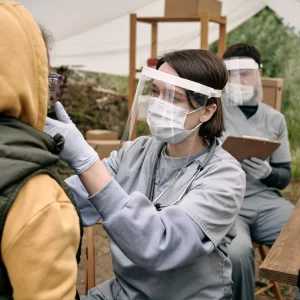
Austere environment medicine involves delivering healthcare services in the most remote places. This may include the wilderness, a desert, a mountainous region, the jungle, the Arctic, and hostile environments.
Austere environment medicine also encompasses healthcare delivery in emergency situations, developing nations, tactical operations with deployment teams and special government operations, and exploratory expeditions.
Usually, these environments rarely, if ever, include access to austere medicine services or the qualified and trained personnel to administer healthcare.
Early and Current Examples of Remote Medicine
Origins of remote medicine likely come from historic empires during times of war. Soldiers on the march had no access to a medical specialist, so each resorted to rudimentary healthcare while conquering territories.
The space program also provides an example of an austere and remote environment. Indeed, a spacecraft holds medical equipment while astronauts are equipped with advanced training in medicine for zero gravity situations.
For those in the energy industry interested in tapping natural gas and oil in remote environments, too, require knowledge of medical techniques to maintain health and safety during exploration. Once oil fields became working stations, more equipment and medical personnel joined the teams on the frontlines of the petroleum industry.
More Remote Medical Professionals Required
The world gets smaller by the day. That means more humanity enters spaces where none existed prior. Explorations in the Himalayas and Antarctica, for example, are actually becoming crowded. Jungle excursions with small teams and tourists happen each day. Hostile environments dotted with warring factions and natural disasters in challenging mountainous regions also create opportunities for trained medical professionals in austere medicine.
Remote environments exist throughout the world, not just in developing countries. The forests of Northern Wisconsin and Minnesota or Canada certainly are remote regions. The deserts of the Southwest US simulate the deserts of Africa as remote regions. For those travelers, professionals, explorers, and scientists trekking through unmanned territories, the need for remote medicine specialists becomes greater each time.
What qualifications are most needed for remote medical providers?
Alleanza’s Komodo Korps seeks people interested in the specialty of remote medicine. The company offers necessary training to prepare medical providers for the rigors of austere environments.
Austere medicine requires a breadth of healthcare providers to outfit a remote medical clinic or mini mobile medical station. Emergency medicine physicians, nurses, emergency medical technicians and paramedics are good candidates for additional training in remote medicine.
- Other types of physicians who may make remote medicine a career choice include doctors specializing in internal medicine, surgery, mental health and psychiatry, or anesthesia.
- Nurses and nurse practitioners add a strong component to any remote medical team. Nurses proficient in wound care management and injuries provide solid expertise for consideration in austere environments.
- Paramedics who qualify as remote or expedition paramedics round out a remote medical team. Their training includes diagnostics, medications and antibiotics as well as procedural knowledge. As with a nurse, trauma management and knowledge of illnesses contribute to the importance of paramedics on the austere environment medical team.
- Medical specialists equipped with first aid and emergency medical technical training assist the medical specialists with assessing trauma, wound care, patient interaction, common problems, and overall records management.
Survival Skills Also Required in Remote Medicine
Imagine one of the remote environments mentioned above. Once the team arrives, who sets up camp, starts a fire, pitches the tent or other mobile unit, and sets up the mobile medical station? It’s not a trick question! Everyone lends a hand to scout the area and set up the medical encampment to begin assessing and treating injuries and wounds.
Komodo Korps and Alleanza not only train the medical specialists but train for the environment, as well. Purifying water, protection from the elements, sanitizing equipment, cooking food, navigating the terrain, understanding search and rescue, and maintaining safety standards are only a few requirements for austere environments, regardless of whether the people in the camp are patients, non-medical personnel or medical specialists.
Interested in becoming a specialist in austere environment medicine? Reach Alleanza to learn more about opportunities.


